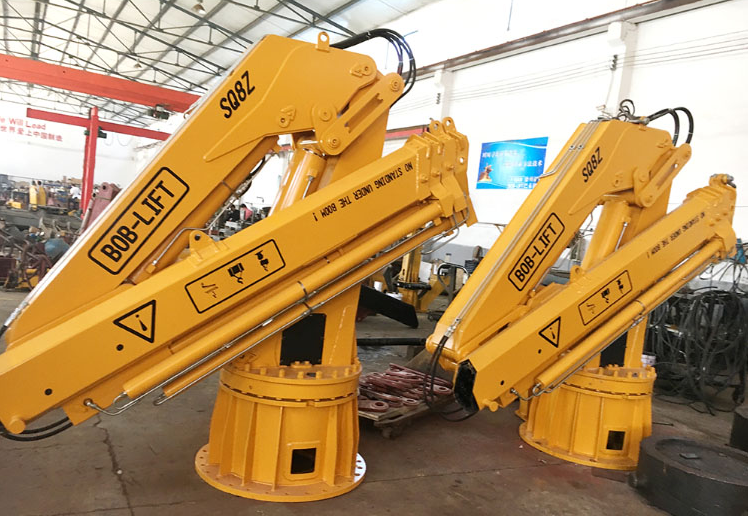Whether you are buying a car or a hydraulic crane in the market, any buyer must ask some questions before signing the dotted line. When you enter each transaction, what you do with the equipment you want, how difficult it is to plan to use it, how often it is maintained-of course, you have a certain understanding of the budget.

When buying a crane, the following precautions before buying are very important:
- Consider the job of the equipment and the company’s goals. Before choosing equipment, CEOs and operators should go beyond the job or work in front of them. Companies often purchase cranes that suit their immediate needs. Then other uses of the crane were discovered in the same job, but the crane may not be able to support the new task.
Consider whether you need to add a lot of small loads or a few major loads. What material do you move most often? Do you need to add only one or two tiers or more of load? Do you use cranes every day? How long is there? What might you need the crane to do within a year? Does your company want to take on a bigger job, and can the crane you are considering support this goal? - Consider the work area. Evaluating your most typical work environment can help you know which crane is suitable for your job, rather than adjusting your work to fit the crane at some point after the crane starts to work. Is your work area open or narrow? Do you have to move freely within a 360-degree radius? Do you need most of your time to work overhead or in front of the crane body?
In addition to the actual working area, other factors of the working environment need to be considered when selecting equipment. For example, compared with oil lubrication, an environment with excessive dirt, shavings, or other particles has a greater negative impact on the efficiency of oil lubrication. - Consider the type of control that suits your work style. Determining how you or your operator want or need to control the crane is as important as the type of load you want to improve. A fixed control station may be very suitable for some operators, but it may cause the visibility of other operators to dim. The top seat station provides a better view, but for some operators, it is still too far from the lifting area. The remote control operation allows the operator to get closer to the actual elevator area, but the signal may be affected by radio interference.
Some operators may choose to use these types of mixtures, but no matter what decision is made, it is better to decide which control best suits your operating needs and style, rather than trying to adapt the operator to the control. - Consider the difficulty and frequency of maintenance. Every crane requires regular maintenance, and parts need to be replaced at some point in the life of the crane. Before buying a crane, consider how complicated it may be to change oil or grease regularly, or how difficult it may be to purchase parts to complete larger-scale maintenance. In addition, check the performance records of the crane manufacturer and model to understand potential problems that may arise.
- Consider the reliability of after-sales support and service. The available support after the sale of hydraulic cranes should be the main factor in your decision. Does the sales team you plan to buy have the ability to anticipate your needs and provide services for your equipment on a regular basis? What is the experience of the service technician, and what is the approximate waiting time for booking a service? Can any qualified and certified maintenance technicians complete the service or repair, or do you need to pay for the transportation of the crane to a special service center, which may end up adding thousands of dollars in transportation costs to the actual maintenance cost?
 truck crane,Truck mounted crane,Marine Crane –
truck crane,Truck mounted crane,Marine Crane –